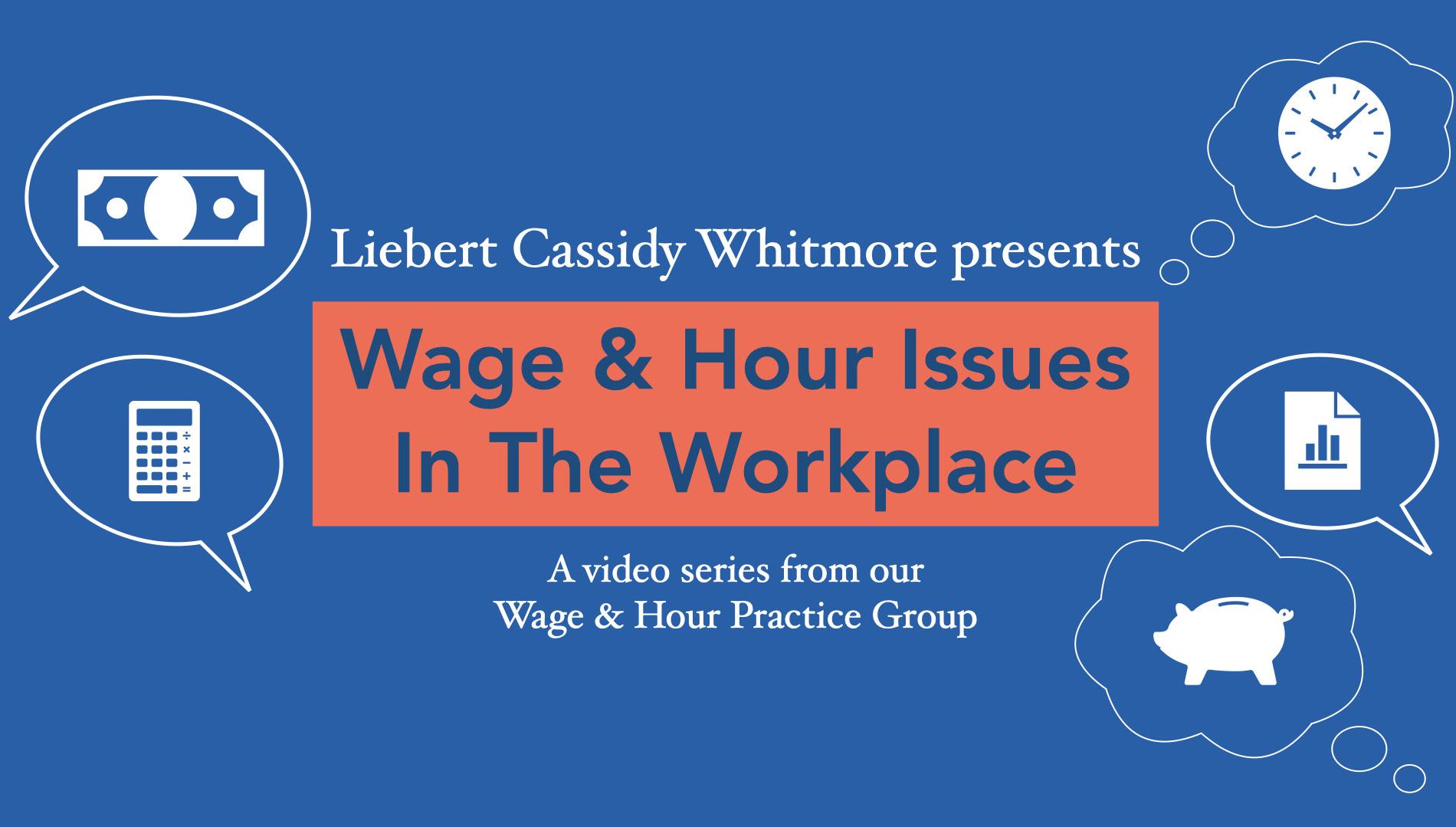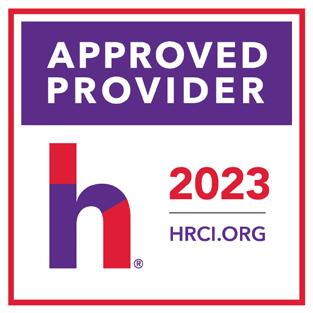Fire Watch











A city terminated a police officer for repeatedly accessing confidential law enforcement information data to obtain personal information for friends. The officer claimed that the information was public, so it was permissible for him to pass the information to his friends. This was false, and the officer had to verify each time he signed in to the database that the information he was retrieving was for a legitimate law enforcement purpose.
After the city terminated the officer’s employment, the officer asked the superior court to review the city’s decision. The officer also claimed that the city failed to give him both the proper notice of investigation and the investigation materials that the city had relied upon as required by the Public Safety Officer’s Procedural Bill of Rights Act (POBR).
LCW was able to show that the officer received sufficient notice of investigation and all the investigation materials that the city relied upon. LCW convinced the judge that city had sufficient cause to terminate the officer’s employment and that the penalty of termination was within the city’s discretion.
A union had asked a city employer, with one day’s notice, for paid release for several employees to attend an informal conference on an unfair practice charge (UPC) at the Public Employment Relations Board (PERB). The city granted the paid release time, but only to the designated employee representative to attend the informal conference, as required by the Meyers-MiliasBrown Act (MMBA). The city allowed the remaining employees to use their own paid leave to cover the time off.
The union filed an unfair practice charge, alleging that the city violated the MMBA by denying paid release time to all the employees who attended the informal conference. LCW argued on the city’s behalf that: 1) the UPC was not filed within six months after the union knew of the city’s paid release time decision; and 2) the MMBA only allows the designated representative to have paid release time in connection with PERB proceedings.
The union filed an amended UPC, alleging that the non-payment of the release time occurred within the six-month limitations period. LCW convinced the PERB agent to dismiss the charge as untimely because the six-month limitations period began at the earlier time when the city communicated it would only grant paid release time to the designated representative. The PERB agent did not address LCW’s argument regarding the “one designated representative” limit on paid release time for PERB proceedings as stated in Government Code Section 3505.3.
In 2021, the city terminated a police officer for cause. Per the Memorandum of Understanding between the city and the police union, the officer had 20 work days to request arbitration. The officer’s attorney and the city confirmed the exact deadline for the officer to request arbitration. The officer informed his attorney of his desire to seek arbitration, but neither of them informed the city until a month after the agreed upon deadline. The city proceeded to deny the officer’s untimely request to arbitrate.
The terminated police officer then filed a lawsuit seeking to be relieved from his attorney’s negligence and to force the city to arbitrate. LCW successfully defended the city against this lawsuit at the trial court level, at the earliest opportunity, by prevailing on a demurrer without a leave to amend.
The terminated police officer then appealed, arguing that he was entitled to statutory relief from forfeiture, and the city was obligated to submit to arbitration. LCW successfully argued before the California Court of Appeal that the statute the police officer had cited was inapplicable. The Court of Appeal agreed and affirmed the judgment for the city.
A probationary police officer sued for disability discrimination, retaliation, and failure to accommodate. The case arose after the officer was injured while responding to a call for service. The officer’s doctor initially prescribed work restrictions that included, among other things, no standing, walking, or sitting more than 20 cumulative minutes per hour, and no lifting more than five pounds. The officer also needed to lay down a minimum of 20 minutes per hour. If those
accommodations could not be provided, he was deemed temporarily totally disabled. The city granted his requests for temporary total disability leave. The officer filed a worker’s compensation claim as well.
Later, the city discovered that the officer was quite physically active even while “temporarily totally disabled,” and the city reported this information to its third-party administrator. An investigation conducted by the third-party administrator included sub rosa video which showed that the officer was carrying several heavy items, lifting and carrying tables, walking without using crutches, entering and exiting vehicles without hesitation, providing support for a person above his shoulders so that person could reach a basketball rim, and even scaling a fence four separate times to hang a sign.
The officer was eventually cleared to return to modified work with no contact with the public. The city determined that it could not accommodate the restriction of no contact with the public and advised the officer. The officer then returned to his doctor for reevaluation and was cleared for work as a police officer without any restrictions.
The chief released the officer from probation after reviewing the evidence of suspected worker’s compensation fraud. The officer responded by filing the claims noted above in the California Superior Court.
The court granted the city’s motion for summary judgment on all counts. First, with respect to disability discrimination and retaliation, the court found that the city had a legitimate business reason for releasing the officer from probation. Second, because the officer’s claims of discrimination and retaliation failed, his claims for failure to prevent discrimination and retaliation also failed.
Finally, the court found that the city appropriately accommodated the officer through a good faith interactive process. The city initially granted the officer paid temporary disability leave, and later reviewed available desk assignments for positions that complied with his work restrictions. Because an employer has no affirmative duty to create a new position to accommodate a disabled employee, the court dismissed this claim as well.
Olga Y. Bryan, an associate in the San Diego office, advises clients on labor, employment, and wage and hour matters. She has defended employers in litigation claims for a variety of issues including discrimination, retaliation, harassment, wrongful termination, and wage and hour class violations.
May 10, 2023
10:00 am - 11:00am


This workshop will assist public safety employers in making disability retirement determinations by reviewing the new requirements from CalPERS for making these determinations. CalPERS now requires employers provide additional information and documentation regarding a member’s job duties and the frequency with which they perform various physical activities as well as medical documentation related to the member’s substantial incapacity. The workshop will provide valuable resources, guidance and forms to enable employers to make the IDR determination and submit the appropriate documentation to CalPERS in support of that determination.
Who Should Attend: Risk Managers, Human Resources, Supervisors, and Managers. This webinar will focus on Safety CalPERS agencies.
Register here!
CalPERS issued Circular Letter 200-014-23 in March 2023 to add new requirements that contracting agencies must follow when determining whether local safety members qualify for a disability retirement. CalPERS now requires agencies to submit additional documentation and information, including completing several new CalPERS forms, when certifying an application for disability retirement, industrial disability retirement, and re-evaluation for continuous eligibility for disability retirement. As a result of the new requirements, local agencies may not be able to rely solely on workers’ compensation reports to the extent that those reports contain presumptions or prophylactic work restrictions that are not applicable in the CalPERS setting.
To view this Special Bulletin in its entirety, please click here or copy and paste this URL: https://bit.ly/3LcUVCp


The LCW Labor Relations Certification Program is designed for labor relations and human resources professionals who work in public sector agencies. It is designed for both those new to the field as well as experienced practitioners seeking to hone their skills. Participants may take one or all of the classes, in any order. Take all of the classes to earn your certificate and receive 6 hours of HRCI credit per course!

Benefits of Certification to the Participant:
• Increase knowledge in all areas of Labor Relations
• Increase your value to your agency
• Increase respect and recognition in the field
• Increase opportunity for upward mobility
• Increase marketability and ability to compete in the job market
• Increase professional credibility

Benefits of Certification to the Agency:
• Increase the level of competency of the individual
• Encourage and improve job performance
• Acknowledge an individual who has developed a high level of professionalism
• Use as an aid for retention and recruitment
Join our upcoming HRCI CertifiedLabor Relations Certification Program Workshops: 1. May 18 & 25, 2023 - The Public Employment Relations Board (PERB) Academy 2. June 15 & 22, 2023 - Trends & Topics at the Table 3. July 20 & 27, 2023 - Bargaining over Benefits
INTERESTED?
Visit our website: www.lcwlegal.com/lrcp
The use of this official seal confirms that this Activity has met HR Certification Institute’s® (HRCI®) criteria for recertification credit pre-approval.

By March 2020 the COVID-19 pandemic began to overwhelm hospitals nationwide. One hospital within the Alameda Health System (AHS), Highland Hospital, quickly experienced a shortage of personal protective equipment (PPE). A supervisor at Highland Hospital began to worry that supplies of PPE would be exhausted and directed nurses to wear cloth gowns when tending to non-COVID-19 patients instead of the fluid-resistant gowns normally worn.
Many of the nurses, who are represented by the Service Employees International Union, Local 1021 (SEIU) felt uncomfortable about this change. Saber Alaoui was a probationary nurse in March 2020. During one of his shifts, Alaoui cut holes in a garbage bag and wore it as a makeshift fluid-resistant gown over his cloth gown.
At some point, an SEIU employee representative approached Alaoui and asked if he would share the picture of himself wearing the modefied garbage bag. Alaoui agreed because SEIU was advocating about PPE issues, and seeking to improve access to isolation gowns. SEIU representatives put a version of Alaoui’s picture on Facebook, Instagram, and Twitter.
The post gained traction online and an article appeared in a local newspaper. Part of a Board of Trustees meeting focused on AHS’s response to the pandemic. The Board discussed media reports of the nurse who wore a garbage bag as PPE. A Board member asked the AHS CEO if staff were being denied necessary PPE, and the CEO responded that they were not. The Board member then asked, “for the purpose of political theater, have you required staff to wear garbage bags?” The CEO responded, “no,” and said that he happened to be visiting Highland Hospital when the nurse reported wearing a garbage bag. The CEO characterized the incident as an “unfortunate episode” and said that isolation gowns were available later in the day. The Board member responded, “that kind of political theater is not acceptable [in] a time of
crisis and we need to keep our heads level and . . . our eyes on the . . . real problem.”
Shortly thereafter, Alaoui’s supervisors began discussing whether to release Alaoui from probation for performance reasons. Alaoui had failed to administer medication as required by the patient’s treatment plan, and had improperly pulled medications for more than one patient at the same time. When counseled about these mistakes, Alaoui was recalcitrant and argumentative. AHS released Alaoui from his probationary employment.
SEIU filed an unfair practice charge (UPC) with the Public Employee Relations Board (PERB) against AHS, alleging that both Alaoui’s release and the Board member’s statement were improper interference with protected union activity under the MeyersMilias Brown Act (MMBA) the state law that governs local public agency labor relations.
To establish a prima facie interference case, a charging party must show that an employer’s conduct tends to or does result in some harm to protected union and/or employee rights. A charging party need not

prove an employer acted because of an unlawful motive. If the union establishes a prima facie case, the burden shifts to the employer. The degree of harm triggers the weight of the employer’s burden. If the harm is “inherently destructive” of protected rights, the employer must show that the interference resulted from circumstances beyond its control, and that no alternative course of action was available. For conduct that is not inherently destructive, the employer must show that it narrowly tailored its conduct based on an important operational necessity.
PERB found that Alaoui’s release from probation was for legitimate business reasons, namely, poor performance, and was not inherently destructive.
PERB found that the photo of Alaoui wearing the garbage bag gown was protected activity because it drew attention to employee safety concerns. Releasing Alaoui from probation shortly afterwards tended to harm protected rights. But, PERB held that the harm caused by releasing Alaoui from probation shortly after the protected activity was outweighed by AHS’s right to release an employee from probation for serious work performance issues. PERB dismissed this part of the charge.
PERB next examined the claim of interference based on the Board member’s statement that “political theater is not acceptable.”
In an interference case involving employer speech, PERB looks at the circumstances to determine if an employee or union representative had an objective reason to feel that the employer’s communication coerces, restrains, or otherwise interferes with protected rights. Generally, an employer has a safe harbor from an interference violation if it expresses its views, arguments, or opinions on employment matters, unless its expression contains a threat of reprisal or force, or a promise of benefit. This safe harbor for employer speech does not apply, however, “to … urging employees to participate or refrain from participation in protected conduct, statements that disparage the collective bargaining process itself, implied threats, brinkmanship, or deliberate exaggerations.”
PERB first decided that the actions the Board member described as “political theater,” in context, were protected activities because the statement occurred amidst union and employee actions around safety and PPE shortages. But, PERB further held that an employee listening to
the statements could reasonably infer a threat because a reasonable employee would understand “not acceptable” to mean “prohibited.”
PERB concluded that the Board member’s comments that “that kind of political theater is not acceptable” constituted interference in violation of the MMBA.
SEIU v. Alameda Health System, PERB Dec. No. 2856-M 3/23/23.
Note:
This case illustrates how careful management must be with any communications that relate in any way to protected activity. On the other hand, PERB does respect an employer’s ability to release low-performing employees even if they have engaged in protected activity, so long as that release is based on operational necessity.
To view these articles and the most recent attorney-authored articles, please visit: www.lcwlegal.com/news.
• Recently published in the Fresno Business Journal, OC Register, The Mercury News, LA Daily News, San Gabriel Valley Tribune, and on SiliconValley.com, LCW Partner Shelline Bennett speaks on Assembly Bill 2188, which will go into effect on January 1, 2024. This legislation makes it unlawful for employers to discriminate against a person in hiring, terminating, or placing any term or condition of employment based upon the use of cannabis off the job and outside the workplace.

This three-hour presentation is designed to provide an overview of what it means to be a public employee, the important role of a public servant and how to succeed in public service. The presentation will cover the following issues:
• The difference between public vs. private sector employment
• The responsibilities and role of a public employee
• Common labor laws for public employees
• Ethical obligations of public servants
• Efficient use of public resources
• Providing customer service
• Creating and maintaining a work environment of respect, dignity, and integrity for the citizens we serve
Any and all public employees, including entry-level employees, general and lead workers, supervisors and managers. This workshop is also encouraged for any level of employee who is new to the public sector or who would benefit from a refresher workshop.
For more information, visit our website here!
Whether you are looking to impress your colleagues or just want to learn more about the law, LCW has your back! Use and share these fun legal facts about various topics in public safety.
• Fire crews practiced their skills last week at Cal Fire’s annual crew preparedness drill. Through the training, the crews aimed to reach the highest level of certification as part of a Cal Fire Type I Fire Crew.
• Experts are optimistic that California’s wet winter and spring will subdue early fires, as the ground will not dry out until summer.
• Cal FIRE announced it awarded a $3 million-dollar grant to Sierra Pacific Industries for their seedling nursery that will be growing native conifer trees. The grant funding is provided to support reforestation projects in California, after more than 7 million acres of forestland were destroyed by wildfires from 2019-2021.
• Watch Duty, the wildfire alert app run by active and retired firefighters and first responders, is expanding its coverage into Oregon in early May. The app provides accurate, real-time information during fire season.

For more information on some of our upcoming events and trainings, click on the icons below:




LCW has 30+ consortiums across the State! Consortium members enjoy access to quality training throughout the year, discounts on other LCW products and events, and unlimited, complimentary telephone consultation with an LCW attorney on matters relating to employment and labor law questions (including questions involving COVID-19, supervisory skills, and negotiation matters!). We’ve outlined a recent consortium call and the provided answer below. Client confidentiality is paramount to us; we change and omit details in the ERC Call of the Month.
Our fire department is hiring over a dozen new firefighters. They are scheduled to begin work next month. Usually, in the firefighters’ first week of the academy, we send them to our clinic for health testing and vaccines. This year, because so many are starting at once, we would like to send some firefighters to the clinic before their official start date to help stagger the load at the clinic. Do we have to pay the firefighters who we send to the clinic before their start date for their time getting health testing and vaccines?
No, the Fair Labor Standards Act (FLSA) does not require an employer to pay someone who is not an employee for the time spent undergoing a pre-employment medical exam. Nor is there an applicable California wage and hour law that would require your agency to pay for that time. It might be appropriate, however, to consider paying the non-employees for the time they spend in the exam so that all entering firefighters are treated the same. Note that the California Labor Code Section 222.5, however, does state that the prospective employee cannot be required to pay for a medical or physical exam itself if that exam that is a condition of employment.

On March 15, 2023, CalPERS issued Circular Letter 200-014-23, setting forth new requirements that contracting agencies must follow when determining whether local safety members are substantially incapacitated from performance of their usual duties for the purposes of a disability retirement. Specifically, under Circular Letter 200-014-23, agencies are now required to submit additional documentation and information to CalPERS, including several newly created CalPERS forms, when certifying an application for disability retirement, industrial disability retirement, and re-evaluation for continuous eligibility for disability retirement.
For context, CalPERS previously required agencies to certify the following information when making a decision regarding a member’s application for disability retirement:
1. A statement certifying under penalty of perjury that the agency made the determination based on competent medical opinion.
2. A statement certifying under penalty of perjury that the agency did not use the determination as a substitute for the disciplinary process.
3. A finding indicating the member’s substantial incapacitation from the performance of their usual duties.
4. A statement confirming whether the member filed a Workers’ Compensation claim for their disabling condition(s), and if so, a statement as to whether the claim was accepted.
5. A finding by the agency as to whether the member’s incapacity is industrial.
6. A statement documenting the member’s last day on payroll.
7. A statement as to whether there is the possibility of third party liability.
8. A statement identifying the disability condition(s)/body parts.
9. A statement supported by competent medical evidence that the duration of the disabling condition is expected to be permanent, last at least 12 consecutive months, or result in death.

10. A statement identifying the monthly amount and beginning date of Advanced Disability Payments, if they have been or will be paid to the member.
Now, in addition to the above-requirements, agencies must provide more information to CalPERS regarding the member’s job duties and the medical support for the agency’s decision. For example, agencies must complete a form detailing how often the member performs various physical activities such as interacting with others, lifting weight, sitting, standing, kneeling, and climbing in the course of their employment. The form also requires agencies to indicate if the member has been through the reasonable accommodation process, and if so, requires the agency to submit the reasonable accommodation documentation to CalPERS.
Agencies must also submit a form, signed by a physician, that includes the physician’s findings and diagnosis and answers specific questions regarding whether the member is substantially incapacitated. If the member is found substantially incapacitated, the physician must list the specific job duties the member is unable to perform due to incapacity, and whether the incapacity is permanent or will last longer than 12 months.
In order for CalPERS to process the application, agencies must provide the following forms and documentation:
1. Physical Requirements of Position/Occupational Title (Local Safety) form.
2. Job duty statement.
3. Physician’s Report on Disability (Local Safety) form.
4. Worker’s Compensation Carrier Request (Local Safety) form.
5. All medical reports used in making the medical determination for Disability Retirement/Industrial Disability Retirement benefits including reevaluation.
6. The determination resolution or certification.
All of these requirements are new, except for the determination resolution or certification. The determination resolution or certification must still include the previously required information described in items No. 1-10 above. See the Circular Letter for the required CalPERS forms.
CalPERS states in the Circular Letter that this additional information is necessary to ensure that disability retirement and industrial disability retirement benefits are provided only to eligible members. Additionally, CalPERS notes that the new requirements are necessary to adhere to Government Code sections 21232 and 21233, which in part, provide limitations on employment while a retiree is receiving disability retirement or industrial disability retirement benefits.
CalPERS cites Government Code sections 20221 and 21028 as its authority for implementing these changes. Government Code section 20221 requires agencies provide to CalPERS any information concerning its members that CalPERS may require in the administration of its system. Government Code section 20128 requires that members or beneficiaries provide information that CalPERS deems necessary to determine its liability with respect to an individuals’ entitlement to benefits.
Although it is not yet clear how CalPERS intends to use the additional information, CalPERS appears to require this additional information to more closely scrutinize contracting agencies’ decisions regarding local safety members’ disability retirement and industrial disability retirement applications. For example, many agencies rely solely on workers’ compensation reports, which may contain presumptions or prophylactic work restrictions that are inapplicable under the Public Employees’ Retirement Law. Government Code section 21154 provides that contracting agencies, rather than CalPERS, are responsible for determining whether local safety members (other than school safety members) are incapacitated from their duties. It is uncertain if these new requirements will change who decides whether an application is granted or how applications are processed. However, agencies will have to provide additional documentation to CalPERS supporting the underlying application and may have to obtain more independent medical examinations as a result of the changes.
Liebert Cassidy Whitmore attorneys are closely monitoring developments in relation to this Special Bulletin and are able to advise on the impact this could have on your organization. If you have any questions about this issue, please contact our Los Angeles, San Francisco, Fresno, San Diego, or Sacramento office.
View the full blog here.

 Liebert Cassidy Whitmore
Liebert Cassidy Whitmore